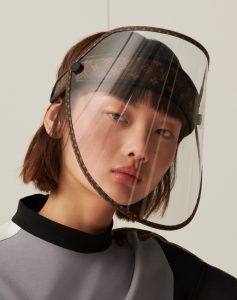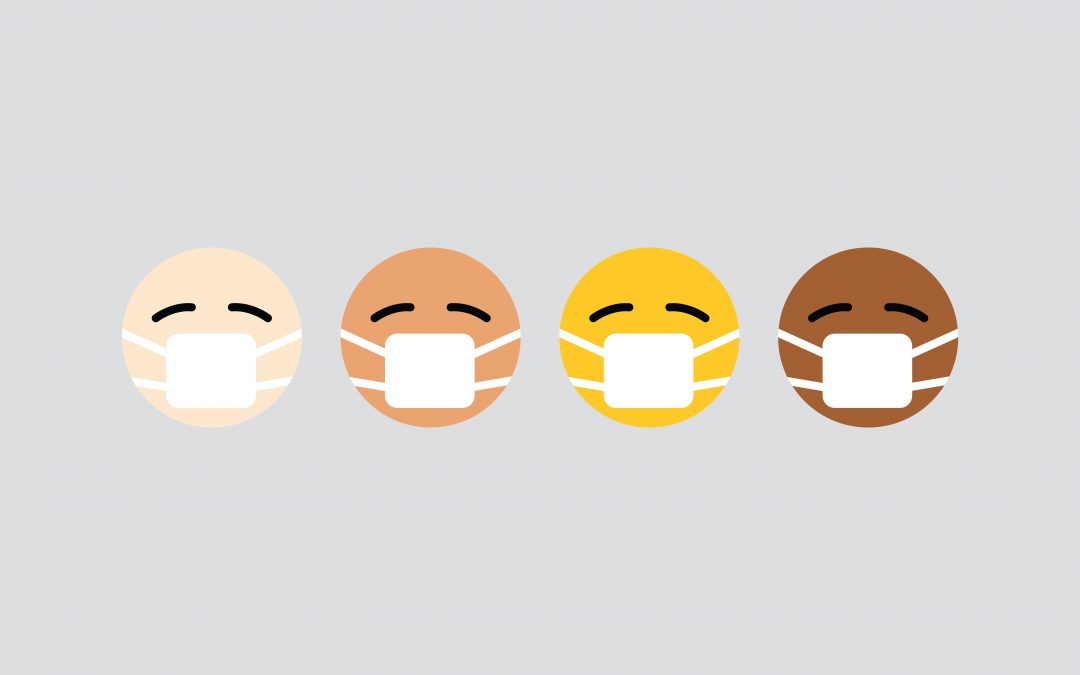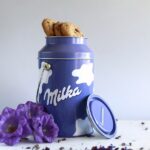The role trademarks play as quality indicators is more important today than ever before.
The coronavirus pandemic has meant that in most countries wearing a mask has become a mandatory part of our lives. While some fashion houses are investing heavily in protecting us from the coronavirus, others are using creative mask designs to make wearing a mask a more enjoyable experience; unfortunately, there are still those who see this difficult situation, which essentially demands unity, simply as an opportunity to make a quick profit.

The fashion industry, just like the rest of the world, has not escaped the unprecedented impact of the coronavirus. The sector has, however, taken major steps to prevent the further spread of the virus. The owners of Louis Vuitton, for instance, announced that the factories producing the luxury brand’s perfume line are switching to manufacturing hand sanitisers to donate to the French healthcare sector. Besides providing face masks to support international efforts to beat the virus, fashion houses have of course come up with their own extravagant designs, among which Louis Vuitton’s face shield, introduced as part of their 2021 cruise collection, is particularly catches the eye. Other deservedly famous fashion houses like Burberry, Marni, Rag and Bone and Erdem have also unveiled their own luxury-priced masks, some even channelling part of the revenue generated into fighting the coronavirus.
Hungarian designers have been quick to follow the example set by international labels and release their own masks, with NUBU, Tomcsányi and other brands each coming up with imaginative creations to encourage consumers to see masks as a fashion accessory rather than just a nuisance, and thereby prompt people to wear them.
As we all well know luxury fashion brands are frequently victims of counterfeiting. The huge demand for surgical masks has spurred factories whose main activity used to be producing counterfeit Dior, Chanel or Prada bags to switch to manufacturing surgical masks. Of course, in this case, it is not the reputable trademarks of fashion brands that are placed on the counterfeit products, but those of companies such as Minnesota-based 3M, that manufactures among other many things personal protective equipment.
The essential function of a trademark is primarily to enable certain goods and services to be distinguished from other goods and services, and to create a link between the product and its manufacturer, and the service and its provider. Moreover, trademarks serve an advertising function, and play a significant role in driving licensing turnover and transferring technology and know-how. Trademarks also act as quality indicators, since a brand invests heavily in ensuring the product or service it offers is of the highest quality and this is the immediate association consumers have with the brand name.
In the present case, counterfeiters of 3M masks place the 3M trademark on the counterfeit products precisely for that purpose, since the 3M trademark conveys to consumers that the product, in this case the surgical mask, has been manufactured by the trademark owner according to strict hygiene standards and in line with all legal requirements. This activity constitutes trademark infringement and can incur serious civil law consequences.
Although the fight against counterfeiting is an extremely difficult one, a trademark portfolio can always be an effective tool in combatting infringers. While counterfeiting the products of luxury fashion brands is in itself economically seriously detrimental, counterfeiting personal protective equipment, such as masks and hand sanitisers, designed to prevent the spread of the virus presents not just an economic but also a health risk. After all, products manufactured in this way are made neither in accordance with the appropriate hygiene requirements nor of the proper materials. It is therefore essential that we take effective action against these products. In Hungary, more than 3.5 million medical devices, medicines, disinfectants, items of protective equipment and masks have been prevented from finding their way onto the market by the National Tax and Customs Administration within the framework of the international STOP action which took place between 11 May and 12 July 2020. Gyula Pomázi, President of the Hungarian Intellectual Property Office and Vice President of the National Board Against Counterfeiting, emphasised the great threat that medicines and personal protective equipment originating from unregulated sources poses to human health, as well as the harm they cause to official manufacturers and the domestic economy.
Further to this topic, it would be important to mention a recent article published by our colleague, Miklós Sóvári, European and Hungarian patent attorney, on the legal instruments available to rightsholders when it comes to online shopping and counterfeit products, as well as the risks impacting traders and consumers of counterfeit goods.
ALIZ KOVÁCS
Candidate Attorney at law

Louis Vuitton photo credit: https://www.dezeen.com/2020/09/14/louis-vuitton-face-shield-coronavirus-viso r/






